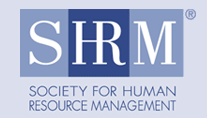10 Changes You Need to Make to Your Harassment Prevention Practices ASAP
Since the #MeToo movement began, there has been growing consensus that the anti-harassment practices of the past are insufficient to address bad behavior at work. Based on empirical research, evidence-based best practice, and recent survey data about employer practices, this session outlines ten key changes that organizations can make to improve current training, complaint handling, and communications -- as well as new initiatives to implement, such as identifying critical risk areas, increasing transparency, and using HR data -- to maximize the impact and effectiveness of your anti-harassment efforts.
Learning Objectives:
- Knowledge of empirical research illustrating the shortcomings of traditional anti-harassment practices.
- Data insights from national surveys regarding employers' prevention practices, as well as employee attitudes and behaviors related to harassment prevention.
- A checklist of action items to enhance the impact of your organization's anti-harassment programs, procedures, and communications.
- Strategies for taking your current anti-harassment efforts to a new level.
Elizabeth Bille, JD, SHRM-SCP

Elizabeth Bille is an employment law attorney and currently serves as the subject matter expert on the prevention of harassment and discrimination in the workplace for EVERFI. Prior to joining EVERFI, Elizabeth was general counsel and chief ethics officer of the Society for Human Resource Management (SHRM); served as a legal and policy advisor to the Vice Chair of the EEOC; and counseled employers at the law firm of Hogan & Hartson (now Hogan Lovells). Elizabeth's work has been cited by several news outlets such as National Public Radio, the Wall Street Journal, and the New York Times.
Find Sessions by Day
Find Sessions by Speaker
Find Sessions by Topic
- Select Track
- Compensation & Benefits
- Culture
- Employment Law & Regulations
- Global HR
- HR Department of One
- HR Technology and Data Analytics
- Inclusion & Diversity
- Leadership & Personal Growth
- Org. Effectiveness & Strategic Planning
- People & Talent Management
Find Sessions by Credit Type
- Select Credit Type
 SHRM PDCs
SHRM PDCs
Find Sessions by Competency
- Select Competency
- Business Acumen
- Communication
- Consultation
- Critical Evaluation
- Ethical Practice
- Global & Cultural Effectiveness
- HR Expertise
- Leadership & Navigation
- Relationship Management
Find Sessions by Intended Audience
- Select Intended Audience
- Early Career
- Mid-Level
- Senior-Level

